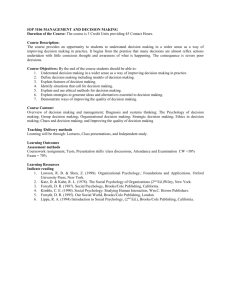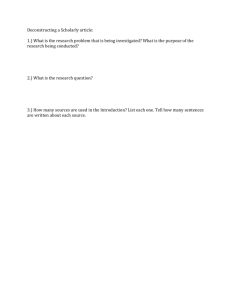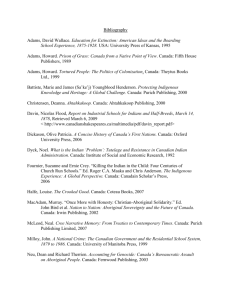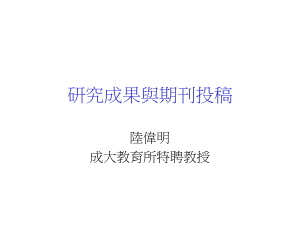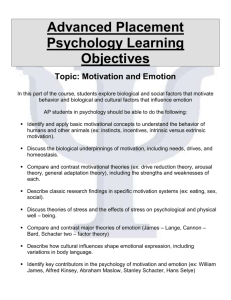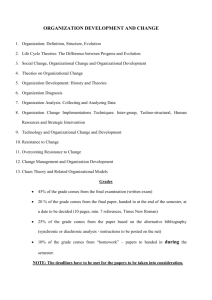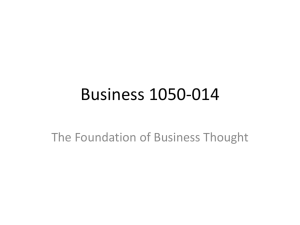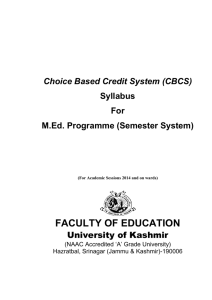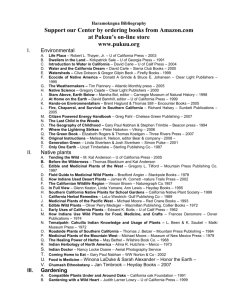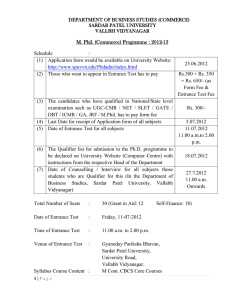Paper - 302 - Andhra University
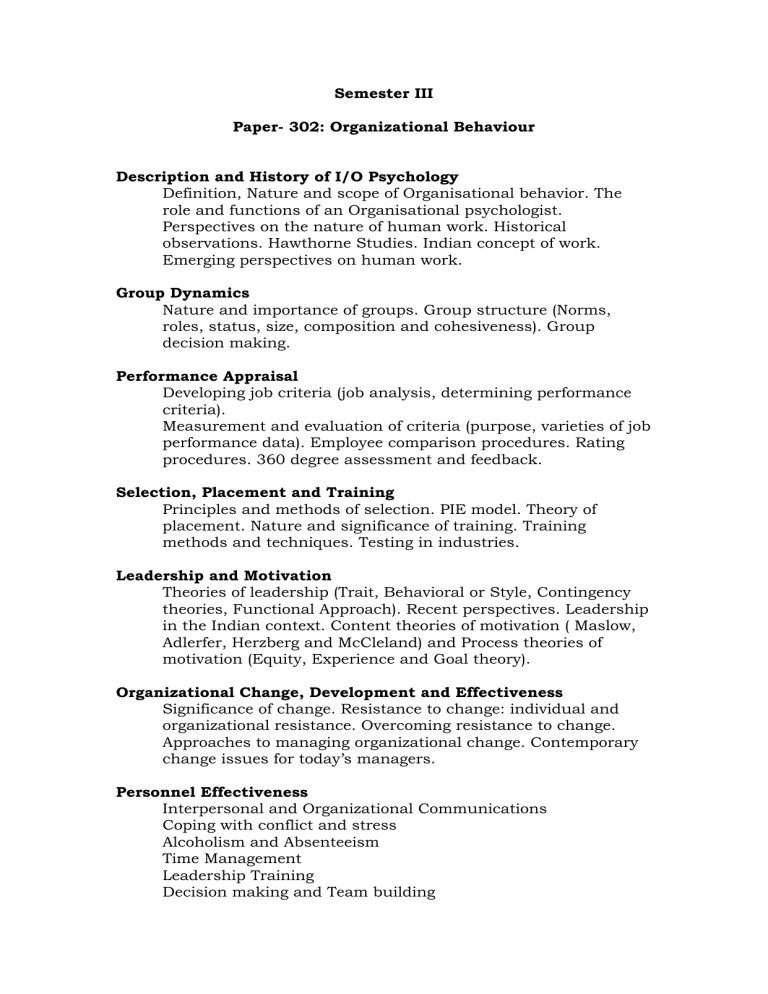
Semester III
Paper- 302: Organizational Behaviour
Description and History of I/O Psychology
Definition, Nature and scope of Organisational behavior. The role and functions of an Organisational psychologist.
Perspectives on the nature of human work. Historical observations. Hawthorne Studies. Indian concept of work.
Emerging perspectives on human work.
Group Dynamics
Nature and importance of groups. Group structure (Norms, roles, status, size, composition and cohesiveness). Group decision making.
Performance Appraisal
Developing job criteria (job analysis, determining performance criteria).
Measurement and evaluation of criteria (purpose, varieties of job performance data). Employee comparison procedures. Rating procedures. 360 degree assessment and feedback.
Selection, Placement and Training
Principles and methods of selection. PIE model. Theory of placement. Nature and significance of training. Training methods and techniques. Testing in industries.
Leadership and Motivation
Theories of leadership (Trait, Behavioral or Style, Contingency theories, Functional Approach). Recent perspectives. Leadership in the Indian context. Content theories of motivation ( Maslow,
Adlerfer, Herzberg and McCleland) and Process theories of motivation (Equity, Experience and Goal theory).
Organizational Change, Development and Effectiveness
Significance of change. Resistance to change: individual and organizational resistance. Overcoming resistance to change.
Approaches to managing organizational change. Contemporary change issues for today’s managers.
Personnel Effectiveness
Interpersonal and Organizational Communications
Coping with conflict and stress
Alcoholism and Absenteeism
Time Management
Leadership Training
Decision making and Team building
Employee Counselling
References
Berry, L.M. Psychology at Work. (2 nd ed.) 1998, McGraw Hill, Boston.
Lawley F.J. The Psychology of Work Behavior. 1989, Books/Cole
Publishing Company, California.
Rollinson, D., Broadfield, A., and Edwards, D.J. Organizational
Behavior and Analysis (An Integrated Approach). 1998, Addison-
Wesley, Harlow, England.
Bernardin, H.J. and Russell, J.E. Human Resources management-An
Experiential Approach. 1998. Irwin-McGraw hill, Boston.
Saal, F.E., Knight, P.A. Industrial and Organizational Psychology-
Sciences and Practices. 1999, Brooks Publishing Company, California.
Marvin, B., Dunnette, T. and Leatter, M.H., Handbook of I/O
Psychology (4 vols.). 1999, Jayco Publishing House, Calcutta.
Moorhead, G., and Griffin, R.W. Organizational Behavior. 1989,
Houghton Miflin Company, Boston.
Luthans, F. Organizational Behavior. 1992, Mcgraw-Hill Inc. New
York.
Davis, k. Human Behavior at work. 1994. Tata McGraw Hill
Publishing Co. New Delhi.
Tiffin, J., and McCormick, E.J. Industrial Psychology, 1965, Prentice
Hall India Pvt. Ltd. New Delhi.
Robbins, S.P. Organizational Behavior-Concepts, Controversies and
Applications. 2004, Prentice Hall of India, New Delhi.
Lewis, J.A., and Lewis, M.D. Counselling Programmes for Employees in the Workplace. 1986 Brooks/Cole Publishing Company, California.
Gordon, J.R. A Diagnostic approach to Organizational Behavior. 1991.
Allyn and Bacon, Boston.
Paper - 302: Organizational Behaviour
Model Question Paper
Time: 3 hours Max.Marks:85
Section – A
Answer any Three of the following: 3 X 20 = 60
1.
What are the historical observations about work?
2.
Describe the characteristics of organizations.
3.
What is the role of Psychologist in industry?
4.
What is Job Analysis? How do you determine various performance criteria?
5.
What are the organizational challenges present in Indian scenario?
Section – B
Answer any Five of the following: 5 X 5 = 25
1.
What are the different approaches to study of behavior at work?
Discuss.
2.
Explain about the ethics of manager in work situation.
3.
What is scientific management? How Hawthorne studies helps to understand work behavior?
4.
Explain about the emergence of international management by giving more emphasis on cross cultural aspects.
5.
Discuss about the contemporary organizational challenges in
Indian industrial scenario.
6.
Describe the applications of models in Organisational Behavior.
7.
Write a short note on personnel effectiveness.
8.
Explain the importance of groups.
